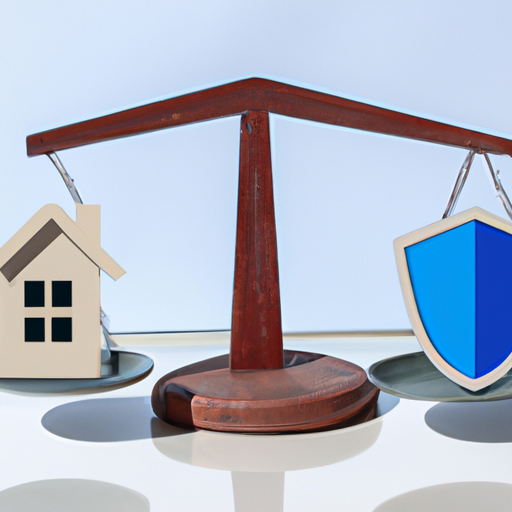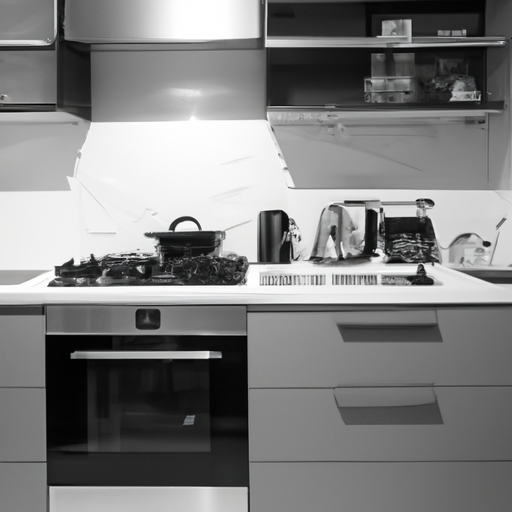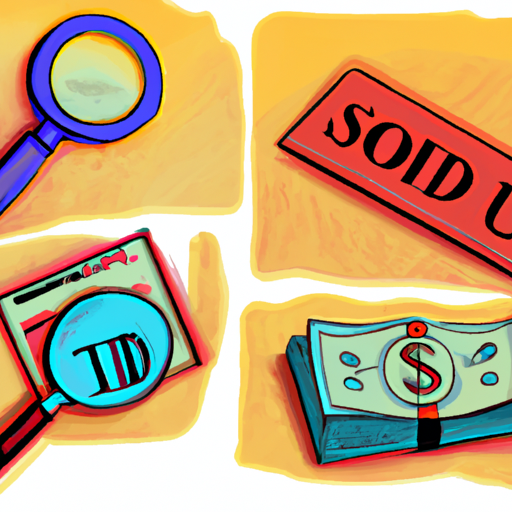Mortgage insurance is necessary for borrowers with less than 20% down payment, as it protects lenders if the borrower defaults on payments. Factors to consider for needing mortgage insurance include loan-to-value ratio, loan type, credit score, and loan term. Preparing your home for sale involves decluttering, cleaning, making repairs, enhancing curb appeal, staging, and upgrading the kitchen and bathroom. It is important to differentiate between mortgage insurance and homeowners insurance.
Are you considering buying a home? If so, you may have come across the term “mortgage insurance.” But what exactly is mortgage insurance, and when do you need it? In this article, we will explore the ins and outs of mortgage insurance, why it is necessary, and the key factors to consider when deciding whether or not to obtain it. Additionally, we will delve into the essential steps to prepare your home for sale and provide tips and tricks for a successful sale if you decide to sell your own home. So whether you are in the market for a new home or thinking about selling your current one, this article will provide you with valuable insights and guidance.
- 1. Understanding Mortgage Insurance: What it is and Why You Need it
- 2. When Do You Need Mortgage Insurance: Key Factors to Consider
- 3. Preparing Your Home for Sale: Essential Steps to Maximize Value
- 4. Selling Your Own Home: Tips and Tricks for a Successful Sale
1. Understanding Mortgage Insurance: What it is and Why You Need it

Understanding Mortgage Insurance: What it is and Why You Need it
When it comes to purchasing a home, many people rely on mortgage loans to finance their purchase. However, lenders often require borrowers to have mortgage insurance in certain situations. So, what exactly is mortgage insurance and why do you need it?
Mortgage insurance is a type of insurance policy that protects the lender in case the borrower defaults on their mortgage loan payments. It provides financial protection to the lender by reimbursing them for a portion of the outstanding loan balance if the borrower is unable to make their payments. This insurance is typically required for borrowers who have a down payment of less than 20% of the home’s purchase price.
One of the main reasons why mortgage insurance is necessary is that it reduces the risk for lenders. When borrowers put down a smaller down payment, there is a higher chance of defaulting on the loan. Mortgage insurance helps to mitigate this risk by providing a safety net for the lender. It allows lenders to offer loans to borrowers with lower down payments, making homeownership more accessible to a wider range of people.
Mortgage insurance also benefits borrowers by enabling them to qualify for a loan with a smaller down payment. Without mortgage insurance, lenders may be reluctant to provide loans to borrowers with less than 20% down payment, as they would be exposed to a higher risk of financial loss. By paying for mortgage insurance, borrowers can secure a loan with a lower down payment, making it easier to become a homeowner.
It’s important to note that mortgage insurance is different from homeowner’s insurance. While homeowner’s insurance protects the homeowner’s property against damage and loss, mortgage insurance protects the lender’s financial interests in case of default.
In conclusion, mortgage insurance is a requirement for many borrowers who have a down payment of less than 20%. It provides financial protection to lenders and allows borrowers to secure a mortgage with a smaller down payment. By understanding mortgage insurance and its importance, potential homebuyers can navigate
2. When Do You Need Mortgage Insurance: Key Factors to Consider

When Do You Need Mortgage Insurance: Key Factors to Consider
Mortgage insurance is a financial safeguard that protects lenders in case a borrower defaults on their mortgage payments. It is typically required by lenders when the borrower has a down payment of less than 20% of the home’s purchase price. Here are some key factors to consider when determining if you need mortgage insurance:
1. Loan-to-Value Ratio: The loan-to-value (LTV) ratio is the percentage of the home’s value that is financed through a mortgage. If your LTV ratio is higher than 80%, you will usually be required to have mortgage insurance. This means that if you have a smaller down payment, you are more likely to need mortgage insurance.
2. Type of Loan: The type of loan you choose can also determine whether you need mortgage insurance. For example, if you opt for a conventional loan, mortgage insurance is typically required if your down payment is less than 20%. On the other hand, government-backed loans like those offered by the Federal Housing Administration (FHA) or the Department of Veterans Affairs (VA) often have their own mortgage insurance requirements.
3. Credit Score: Your credit score plays a significant role in mortgage insurance requirements. Lenders consider borrowers with lower credit scores to be riskier, and therefore may require mortgage insurance even if the down payment is 20% or more. If you have a lower credit score, it is important to be aware that you may need mortgage insurance, regardless of your down payment amount.
4. Loan Term: The length of your loan term can also impact the need for mortgage insurance. Some lenders may require mortgage insurance for the entire duration of the loan, while others may allow borrowers to cancel it once they have built sufficient equity in the property. Understanding the terms of your mortgage and how they relate to mortgage insurance is crucial when considering whether you need it.
It is important to note that mortgage insurance is not the same as homeowners insurance. Homeowners
3. Preparing Your Home for Sale: Essential Steps to Maximize Value

Preparing Your Home for Sale: Essential Steps to Maximize Value
When it comes to selling your home, it’s important to make a good first impression and maximize its value. By taking certain essential steps to prepare your home for sale, you can attract potential buyers and potentially increase your chances of a successful sale. Here are some things you can do to get your home ready for the market:
1. Declutter and Clean: One of the first steps in preparing your home for sale is to declutter and clean every room. Remove any personal items, excess furniture, and unnecessary clutter to create a clean and spacious look. Thoroughly clean every surface, including floors, windows, and countertops, to make your home sparkle.
2. Repairs and Maintenance: Address any noticeable repairs or maintenance issues in your home. Fix leaky faucets, replace broken tiles, repair squeaky doors, and touch up any chipped paint. These small fixes can make a big difference in the overall impression of your home.
3. Enhance Curb Appeal: The exterior of your home is the first thing potential buyers will see, so it’s crucial to create an inviting and attractive curb appeal. Trim overgrown bushes, mow the lawn, and plant colorful flowers to enhance the appearance of your front yard. Consider repainting the front door or adding new house numbers to freshen up the exterior.
4. Stage Your Home: Staging your home can help potential buyers envision themselves living in the space. Rearrange furniture to create a sense of flow and highlight the best features of each room. Use neutral colors and minimal decor to appeal to a wide range of buyers.
5. Improve Lighting: Adequate lighting can make a space feel warm and inviting. Replace any burnt-out bulbs and consider adding additional lighting fixtures or lamps to brighten up darker areas. Natural light is also highly desirable, so open curtains and blinds to let in as much sunlight as possible.
6. Upgrade the Kitchen and Bathroom: These
4. Selling Your Own Home: Tips and Tricks for a Successful Sale

Selling your own home can be a daunting task, but with the right tips and tricks, you can ensure a successful sale. Here are some key things to consider when preparing your home for sale and getting it ready to attract potential buyers.
1. Declutter and Depersonalize: One of the first steps in preparing your home for sale is to declutter and depersonalize your space. Remove any personal items, such as family photos or unique decor, to allow potential buyers to envision themselves living in the space. Clearing out clutter will also make your home appear more spacious and organized.
2. Make Necessary Repairs: Before putting your home on the market, take the time to fix any visible issues or damages. This includes repairing leaky faucets, cracked tiles, or peeling paint. Buyers will appreciate a well-maintained home and will be more likely to make an offer.
3. Enhance Curb Appeal: The first impression is crucial when selling your home. Sprucing up the exterior of your property can significantly impact its attractiveness to potential buyers. Consider repainting the front door, planting colorful flowers, and trimming overgrown bushes or trees. A well-maintained garden or landscaping can make a positive impression and increase the perceived value of your home.
4. Stage Your Home: Staging your home involves arranging furniture and decor in a way that showcases the best features of your property. This can help potential buyers visualize themselves living in the space and can make your home more appealing. Consider hiring a professional stager or use online resources to learn how to stage your home effectively.
5. Market Your Home: To attract potential buyers, it’s important to market your home effectively. Utilize online platforms, such as real estate websites and social media, to showcase your property with appealing photos and detailed descriptions. Additionally, consider hosting open houses or virtual tours to allow interested buyers to explore your home.
6. Price Your Home Competitively: Setting the right price
In conclusion, understanding mortgage insurance is crucial for homeowners who are considering purchasing a home with a down payment of less than 20%. It provides protection for lenders in the event of a borrower defaulting on their mortgage payments. While mortgage insurance may add an additional cost to your monthly mortgage payment, it can help you qualify for a loan and achieve your dream of homeownership. However, it’s important to consider key factors such as your financial situation and the market conditions before deciding if mortgage insurance is right for you. Additionally, when preparing your home for sale, taking essential steps to maximize its value can significantly increase your chances of a successful sale. By following tips and tricks for selling your own home, you can save on real estate agent fees and take control of the selling process. Whether you’re preparing your home for sale or looking for things to make and sell from home, there are numerous opportunities to enhance your home’s appeal and increase its market value. From simple DIY projects to landscaping your garden, there are plenty of things you can do at home to make your property more attractive to potential buyers. By getting your home ready to sell and considering the needs and preferences of buyers, you can increase your chances of a quick and profitable sale.

